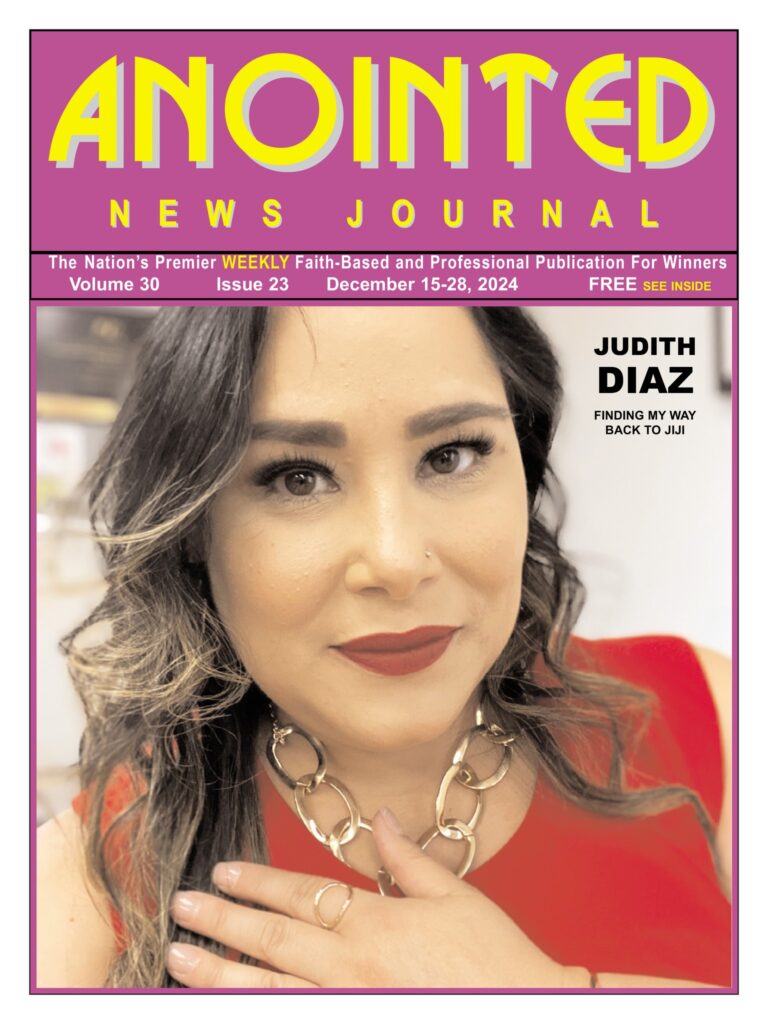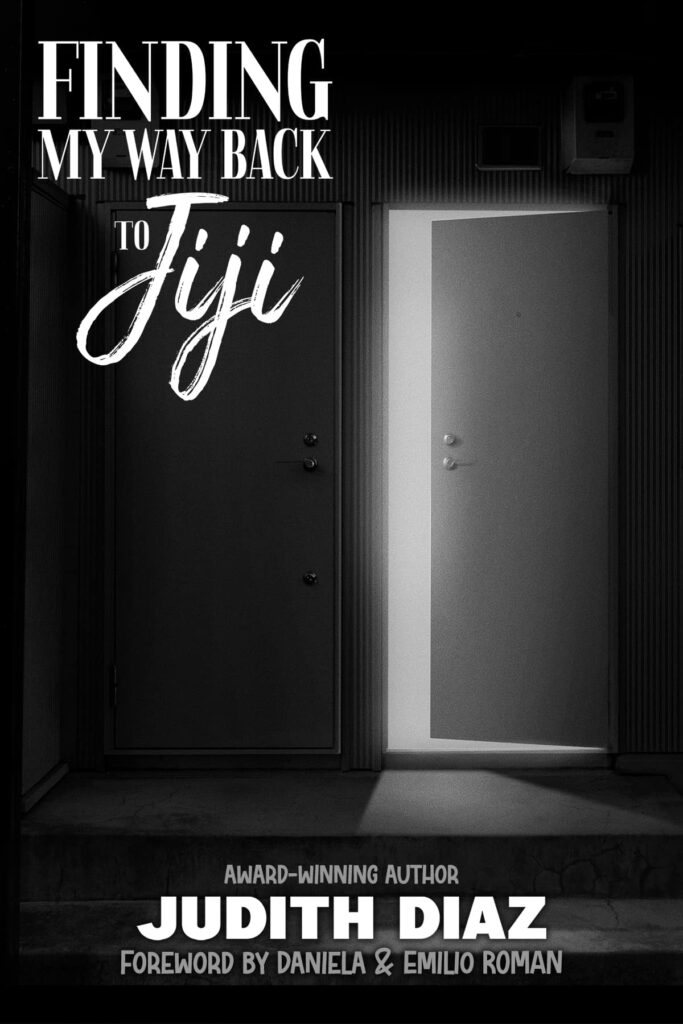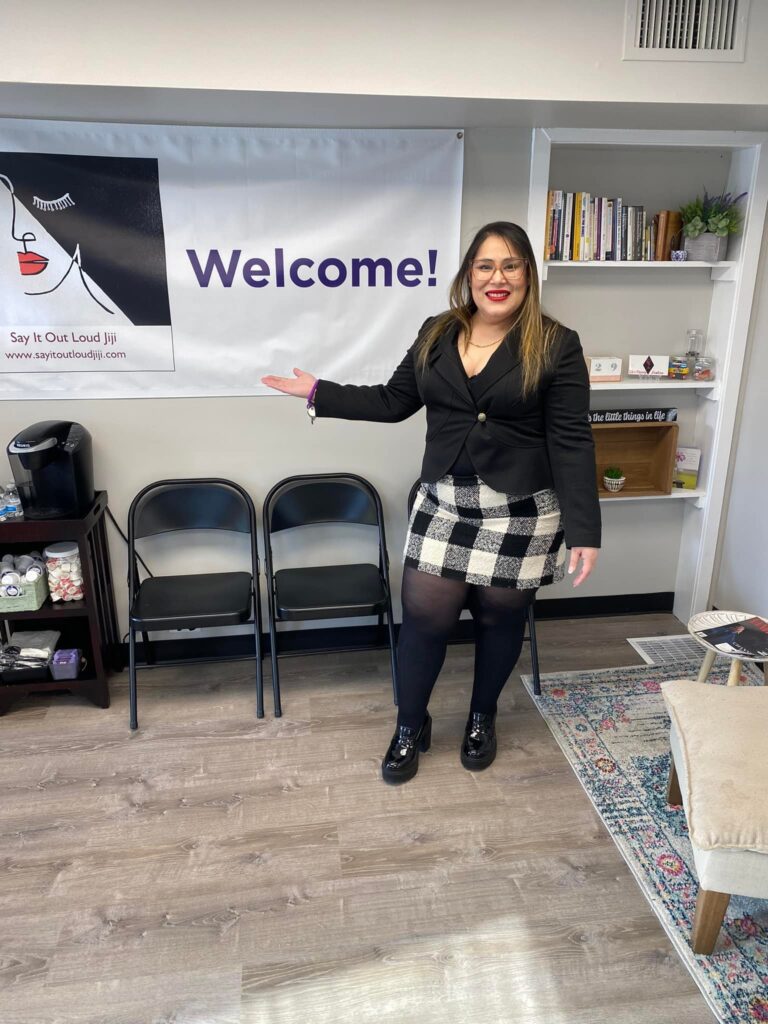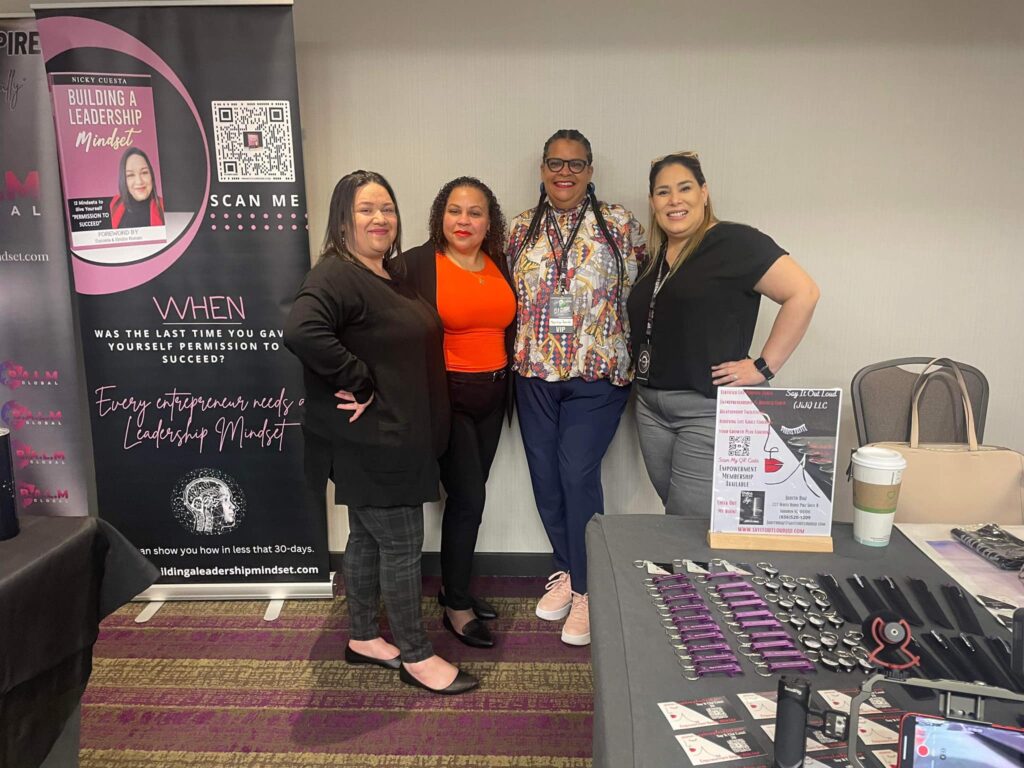Camden, NJ Judith Diaz, a passionate personal development consultant and author of Finding My Way Back to Jiji, has turned her life’s trials into a mission of healing and empowerment. Through her transparent storytelling, she shares a journey marked by overcoming childhood trauma, domestic violence, and self-doubt to embrace her authentic self. Diaz is breaking generational cycles and inspiring teens worldwide to discover their inner strength, set healthy boundaries, and heal from past wounds. Committed to leaving a legacy of mentally healthy leaders, Diaz continues to expand her mission through impactful initiatives.
In an exclusive interview with the nation’s premier faith-based and professional newspaper for winners, Anointed News Journal, Judith Diaz expounds on her mission to help people break through cycles of depression and detrimental behavior caused by trauma.

Collins II:
Who is Judith Diaz?
Diaz:
Judith Diaz is a person who has learned about herself throughout the years. In the beginning of her life, she had a really tough and traumatic background but has found her way back to herself. I’m learning to answer the question, “Who am I?” Today, I am a personal development consultant. I work with teens. That’s my passion. That’s where God has led me to be because sometimes what we want is not where God wants us to be. But I always say, I’m more than a name. I am the daughter of the King and a person who has learned throughout the years to embrace who I am authentically and, most importantly, to love Judith Diaz regardless of what people think.
Collins II:
We’ll talk about your book because it touches on your childhood and more. So you authored a book, Finding My Way Back to Jiji. I thought it was phenomenal.
Diaz:
Thank you!
Collins II:
I thought it was really good. I thought you were very transparent. I definitely felt your pain through the imagery you used to describe your childhood. I think everybody can resonate with that pain—the way you explained it, the fear you experienced, and everything else. Then there’s your journey in adulthood, working your way through all of it, which is a perfect book title, Finding My Way Back to Jiji. I really liked that. I thought the part about writing a letter to your father was really powerful, whether he was going to read it or not. Putting those emotions out there… I thought that was impactful.
Diaz:
Thank you. That’s the whole thing I wanted: for my story to be impactful. It’s a vulnerable thing to do, to put your story out there.

Collins II:
This book is a powerful testimony about your life, the challenges you faced, and how you were able to overcome them. Can you talk a little bit about your book and what readers can expect to get from it?
Diaz:
Finding My Way Back to Jiji… I was very intentional when I chose the title because that’s exactly what my journey has been. Since I was a little girl, a little child seeking love from her own father and not having that, I’ve experienced physical abuse, sexual assault, and relationships that involved domestic violence. Through the journey of that story, besides telling my truth and gaining my freedom, the whole point of writing the book was that if I was going to be this vulnerable, I wanted to impact people.
It’s not just about what I’ve been through—because everybody has a story—but about how I learned to heal myself from all the negative experiences that shaped me into who I am today. I emphasize the importance of healing. So, I don’t just talk about the negative things or all the processes I’ve been through; I talk about how I healed and why healing is so important. Even writing a letter to my own father—closing that door and saying goodbye to the belief that I wasn’t a good enough daughter for him—expressing those emotions… Sometimes we’re scared to say those things out loud.
So I want every reader to not only read this book but to relate to it and see that it’s possible not to let your past define who you are today. Instead, find strength and freedom in it to become the person you are today and to influence and impact others. Everything I’ve been through is now allowing me to impact teens all around the world—not only with my story but with the tools I’ve learned throughout my journey.
Collins II:
You’ve overcome a lot of traumatic things in your life, maybe more than the average person. What is one tip that you could give to someone for overcoming a traumatic childhood?
Diaz:
Do not suppress your feelings. You have to feel the emotion; you have to feel the pain. I suppressed my pain for many years, but I kept seeing that every decision I made brought me back to the same place, like a cycle. I wasn’t able to break free until I allowed myself to feel the pain and to experience the trauma again. Experiencing those emotions is a freedom you won’t find elsewhere. You have to live through those emotions that are sometimes hard. But remember, you’ve already gone through the trauma; it can’t get worse than that.
When you allow yourself to sit in and process those emotions, you gain a realistic understanding of them. Too often, we’re used to running around in life, suppressing our feelings and saying, “I’ll deal with that later.” But later never comes, and triggers will bring you back to the same place. If you sit with those emotions and truly feel them, there’s nothing left to fear. That’s when the healing process begins.
Collins II:
You work with teens as well. What is your current mission, and how do you go about doing that?

Diaz:
My biggest mission is breaking generational cycles and teaching other people how to do that. This involves teaching them how to set healthy boundaries, how to know themselves, and how to heal from their past. I’ve created a workbook around this concept, and my mission is called Your Growth Plan. Once again, I’m very intentional about how I write and title things.
Your Growth Plan consists of 10 programs that help teens identify things we often overlook. For example, who do we surround ourselves with? This is a simple yet profound question because the people around us influence our lives in significant ways, whether positively or negatively. Sometimes we don’t take the time to identify these things. The workbook also addresses what boundaries look like and how to establish them.
Diaz:
So that’s my mission: to have this workbook out there so no one ever feels alone or like they don’t have the tools they need to grow on their own. I’m not a therapist or a counselor, but I believe it’s important to know your own feelings and to sit with them. Nobody will understand you like you understand yourself because you’re the only one feeling those emotions. Sometimes we don’t even have the words to express what we’re going through, but these programs—Your Growth Plan—help you do that. They teach you how to express yourself.
There are so many ways to express yourself, and that’s why I always say my mission is bigger than me. It’s a legacy. It’s about planting seeds. Imagine planting a seed in every teen—what kind of adults they’ll grow into, what kind of leaders they’ll become. My mission is to keep building leaders, but mentally healthy leaders.
Collins II:
What’s next for Judith Diaz?
Diaz:
What is next for Judith Diaz? That’s a very good question. I think only God has the answer to that. I’ve lived my life making decisions on my own and doing things the way I wanted, but now I let God guide me. If He says, “Stop doing this and open this door,” that’s the door I’m going through because I know He will never let me down.
I have many plans. I want to continue with Say It Out Loud, Jiji. I want to create a full program for teens, including after-school and summer programs. I have so many ideas, but I’ve learned that when I put God first and let Him lead me, everything is bigger than me.
I also have a vision for an Elevate & Inspire Conference. It’ll be about small business owners coming together for teens. The purpose of the event will be to educate small business owners. Running a small business is hard, and if we have the right tools—whether financial, mental, or mindset-related—everything falls into place. That’s what I want to bring to the table for all small businesses. But there’s an even bigger mission: fundraising to bring the Your Growth Plan workbook to Camden middle and high school students. This workbook is such a powerful tool. I believe we need to provide it to teens. What they do with the information is up to them, but at least they’ll have it.
Collins II:
And finally, what would you like to say to the readers of the Anointed News Journal?

Diaz:
I want to say to always believe in your dreams. As much as we try to become something in this world, the best thing you can ever become is yourself—your authentic self. Knowing who you are and finding that passion, while letting God guide you through it, is key because He won’t let you down. I want all the readers to know that Say It Out Loud, Jiji is a family company. Thank you for taking the time to read my story. If you ever need help or assistance, our doors are always open.
Collins II:
Perfect. Can you provide additional contact information? You gave your website—is that the best way to reach you?
Diaz:
No. I also have my email, which is [email protected]. Our office location is 227 South White Horse Pike, Suite B, Audubon, New Jersey 08106. We’re open Monday to Friday from 9:00 AM to 3:00 PM. This is a safe place where people can come. Many people use our meditation area and just sit there, others come and do their work.
Collins II:
Judith Diaz’s journey from adversity to empowerment serves as a powerful testament to the resilience of the human spirit. Through her book, Finding My Way Back to Jiji, and her workbook, Your Growth Plan, she provides the tools and inspiration for others to heal, grow, and embrace their authentic selves. With a mission rooted in breaking generational cycles and building mentally healthy leaders, Diaz is not only changing lives but planting seeds of hope and transformation for future generations.
Currently on the www.sayitoutloudjiji.com, there is an option to “Sponsor a Teen”. Sponsoring a teenager offers a valuable opportunity to invest in the personal development and well-being of the younger generation in your community. By supporting this initiative, you are nurturing the potential and success of a young individual while also contributing to the overall betterment of society. The sponsorship funding will directly go towards providing opportunities for personal growth, mentoring, and workshops hosted by Say It Out Loud Jiji LLC focused on improving mental health and overall well-being for teenagers. By sponsoring a teen through this program, you have the chance to make a significant impact on their life trajectory, helping them build skills, resilience, and a positive outlook for the future. Please consider sponsoring a teen. Support the next generation of leaders and influencers, and be part of creating a brighter & healthier future for our community.
By Christopher Collins II

Recent Comments